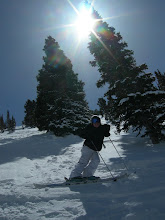OK so for the last blog I am going to write the same one for both classes. I am right in assuming this is the last week we have to blog??
I thought I would share my overall final ideas for each class.
Overall I think I am more aware of my own actions and own energy consumption. I broke out the bike this morning and rode to the post office. I’m not sure its something I will do often, but hey it’s a start. In my continuing house search I look for things, such as energy star appliances, the windows, type of heat, and age of the building. I have planted a small 3 pot herb garden. Planted. I wish I could say I they were thriving, but they are not. I kind of feel bad that I bought them as I may end up throwing it out. But I tried. As for local food, I now understand the importance of buying local food, but still like when I started the semester, I can’t afford to eat in that fashion. From Dawn’s class I have learned the qualities it takes to be a leader, but I am still having trouble putting it all together. I still don’t know how to take the leadership skills I have learned and put it into a practical situation. I still find myself being judgemental in certain situation, when I know people are doing something that is not a good ecological choice. It’s frustrating, but perhaps it will come with time. Both of these classes have frustrated me that we don’t really look at things on a global level, we have been focusing on our own communities. But maybe that will be addressed next semester. Overall I have enjoyed sharing thoughts with everyone, and reading everyone’s blogs.
